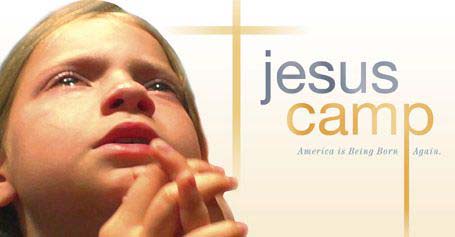Religious Trauma Syndrome: from Abusive Faith to Trust in The Self

Religious trauma syndrome has drawn much attention in recent years: many among us have had traumatic experiences with various types of religion.

The 2007 documentary “Jesus Camp” is a famous chronicle of potentially traumatic religious experience
Depth case studiess know that our religious faith can be one of the greatest sources of support for our lives, if it is life affirming and self affirming. Conversely, however, religious imagery that is authoritarian, pessimistic and filled with fear can be actually corrosive of the self, especially if we’re exposed to it at an early and vulnerable age. In fact, in some situations, such religious formation can prove downright traumatic.
Religious Indoctrination Can Be Hugely Damaging
Organized religion can be particularly negative in its psychic impact, if the religion emphasizes authority, and if the sanctioned interpreters of the religion — preachers and teachers — use techniques of indoctrination or interpretations of texts to enforce their own perhaps narrowly defined ideas of morality, belief and proper way of life. There are now many people in our society who are recovering from forms of fundamentalist, cultic and authoritarian religion, and who are moving beyond various forms of what might be regarded as religious trauma syndrome.
Religion with a Foundation of Fear
Religion that is fundamentally based on fear can be particularly crippling, and leaving such a religious group and its ideas behind can definitely result in an experience of trauma. As Dr. Marlene Winell tells us, “It involves a complete upheaval of a person’s construction of reality, including the self, other people, life, the future, everything.” The individual may require a very significant degree of support to recover, and to transition into a pattern of life that truly sustains the individual.
The Key Characteristics of Religious Trauma Syndrome
Individuals leaving behind trauma-inducing experiences of religion may well face confusion, difficulty with decision-making, or clear analytical thinking, and may also have issues with gaining a clear sense of personal identity. Often there will be affective issues related to anxiety, depression, anger and grief, along with sleep and eating disorders, somatization and possibly nightmares. Among the most potent impacts are social: disruption of family and social networks, interpersonal difficulties and difficulties relating to the wider society.
People who are particularly vulnerable are those:
- born and raised in the religion;
- those leading segregated or sheltered lives;
- those who took their involvement with great sincerity and commitment;
- those from religious groups with particular characteristics of high control.
Beyond Religious Trauma Syndrome: Healing Confusion, Fear, Guilt, Anger, Grief
To move to a more secure and affirming place, individuals subject to religious trauma syndrome need to be encouraged and supported to develop a capacity to think and feel in their own independent way. This entails compassion and love for the unique self and its thoughts, feelings and freedom, finding inner capacities and resources to live life in one’s own way, and living in the immediate present. It also certainly requires moving beyond inner voices of judgment on self and others, and voices rooted in religious indoctrination, to finding the true inner voice of the self.

…Beyond Blind Faith…
This does not mean that there need be a wholesale rejection of religion, but it does mean living out a way of being, religious or non-religious, that accords with the fundamental authentic and spontaneous core of who we are. It may mean, essentially, creating our own, unique religious stance. As the poet Walt Whitman exhorted many years ago,
Re-examine all you have been told. Dismiss what insults your soul.
Helping the individual to affirm the goodness and worthwhileness of his or her own individual life, and discovering his or her own central symbols is a key part of the work of /a-midlife-transition.
Brian Collinson, Registered Psychotherapist & Jungian Psychoanalyst
[cta]
